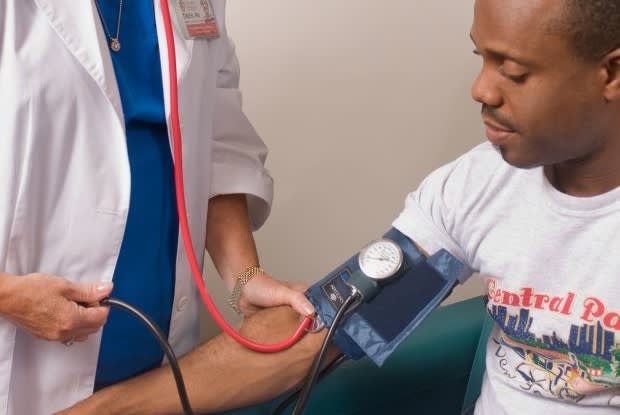Table of Contents
I. The Diagnosis Process for Erectile Dysfunction
b. Nocturnal Penile Tumescence and Rigidity Test
c. Psychological and Psychiatric Assessment
The Diagnosis Process for Erectile Dysfunction
Erectile dysfunction (ED) is a common condition that affects the physical and mental well-being of millions of men. The good news is that modern treatments and oral therapies like Viagra (sildenafil) and generic Cialis (tadalafil) are highly effective and minimally invasive.
However, ED treatments target the symptoms and not the condition’s root cause. If you have erectile dysfunction, your doctor may take you through an extensive diagnosis process. If you are interested in how generic Viagra works or how to get the maximum effect from Cialis, you can visit Canadian Med Center. Read on for what to expect at your doctor’s appointment.
According to the Canadian Urological Association (CUA), the most important component of the diagnosis process is evaluating your medical history. [1] Your doctor will ask about any physical and mental health conditions you may have and assess your sexual history to determine the onset of your symptoms, severity, and duration of sexual dysfunction. You may be asked ED-related factors such as your sexual desire, orgasm, and ejaculation. It is also common practice to ask: Depending on your preference, your doctor may verbally assess your medical and sexual history, or you can answer through a questionnaire. The medical board views questionnaires as extremely beneficial because they allow the patient to provide the necessary information in a more private manner. The next step in the diagnosis process is the physical examination. This is where your doctor will assess the anatomy of your genital area and look for the following: Your doctor will also assess your peripheral circulation (blood flow in the arms and legs) to determine whether peripheral vascular disease is causing your ED symptoms. Finally, your doctor will examine the testes to assess whether there is atrophy or any deformities in the testicles. This part of the physical examination may be embarrassing or uncomfortable, but your doctor is trained to ensure your privacy and comfort. The International Society for Sexual Medicine recommends the following laboratory tests for men: fasting glucose, lipid profile, and hormone profile test. These tests aim to identify diabetes, hypogonadism (testes that do not produce sex hormones), or thyroid hormone deficiencies. Testing for luteinizing hormone (LH), follicle-stimulating hormone (FSH), prolactin, complete blood count (CBC), and a urine test (urinalysis) are optional and not mandatory in most cases. Your doctor will determine which of these tests apply to you. Your doctor may conduct several specialized tests, depending on the diagnostic information they have collected up to this point. These may include a vascular test, nocturnal penile tumescence and rigidity (NPTR) test, and a psychiatric assessment. Several methods to examine the vascular health of your sexual organs are available. Your doctor may use an ultrasound to measure the blood flow in the cavernous vessels before and after an injection with a vasoactive agent. They may also use dye and fluid to induce an erection and assess whether the mechanisms are working properly. A nocturnal penile tumescence and rigidity (NPTR) test records the night-time erectile events over the course of at least two nights. A functional erectile mechanism is measured by at least 60 percent rigidity for 10 minutes. Your doctor may decide to assess your mental health to determine if your symptoms are caused by depression, stress, or performance anxiety. A psychiatric assessment gives your doctor insight into your views on how a couple functions sexually. This step of the diagnosis process is often essential, and doctors may refer their patients to a psychiatrist or sexual counselor if mental health is a major contributing factor. After your diagnosis, your doctor will create an individualized treatment plan and arrange for a follow-up to assess the effectiveness of the treatment. Surgery is usually the last option and reserved for patients who have exhausted less invasive options such as Viagra or Cialis. After your doctor has diagnosed you with ED, you’ll most likely receive a treatment plan. You may be prescribed specific dosages like Cialis 20 mg and it is essential to take your prescription as directed. If your treatment plan is medication-based, you can save on your prescription costs if you buy Viagra through Canadian Med Center. The content in this article is intended for informational purposes only. This website does not provide medical advice. In all circumstances, you should always seek the advice of your physician and/or other qualified health professionals(s) for drug, medical condition, or treatment advice. The content provided on this website is not a substitute for professional medical advice, diagnosis, or treatment.
Medical History
Physical Examination

Laboratory Testing
Specialized Testing
a. Vascular Testing
b. Nocturnal Penile Tumescence and Rigidity Test

c. Psychological and Psychiatric Assessment
After Your Diagnosis
